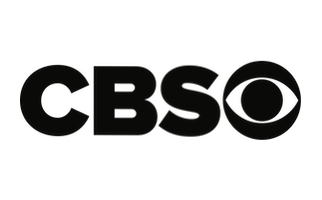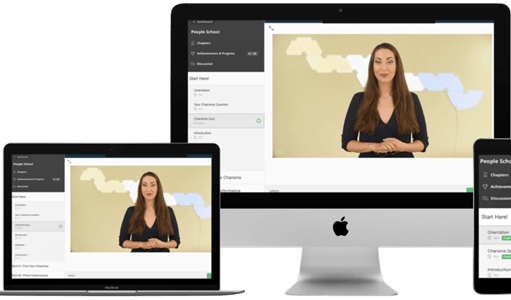
WHAT IT IS AND HOW TO DEVELOP YOUR SKILLS
Effective Communication
Being an exceptional communicator is essential for getting ahead in business, work and life. People with highly effective communication skills know the secrets of speaking powerfully, leveraging their interpersonal intelligence and building relationships. Read on to find out how you can communicate effectively.
What is Effective Communication?
Communication is the bridge between people. Effective communication is one of the rare job skills that can be used in ANY job, in ANY role, in ANY industry.
There are a few ways to know you are an effective communicator.
Effective communication is being able to:
- State your needs
- Talk to anyone, anytime, anywhere
- Set up boundaries
- Be socially assertive
- Ask for what you are worth
- Speak so people listen
- Speak in public
- Negotiate
- Build rapport
When you know how to communicate effectively you can clearly convey your message and receptively receive feedback from others.
How to Communicate Effectively
The better you communicate, the more likely you will succeed at work and in life.
If you EVER communicate with others, then you need to level-up your skills. Why?
You can quantum leap your professional success by perfecting your communication strategies.
People who are exceptionally good at communicating know how to articulate their needs to others — and have them respected. Typically, they have a potent combination of influence and charisma. Here’s the good news: You can too! To be an effective communicator you need to be able to:
Cultivate Your Influence: To get what you want, you have to know what you want. Are you clear on your boundaries and needs? Do you have a strong idea or vision for who you are? Influence comes first from within. If you know what you want, asking for it is much easier.
Hone Your Nonverbal and Verbal Intelligence: Once you know what you want, you need to know how to ask for it. Verbal intelligence will help you know what to say in an interview, negotiation or chit chatting with the boss. Nonverbal intelligence is knowing how to deliver your message in the most powerful way possible with your body language.
Effective Communication is a Two Way Street
You can be an excellent speaker and know how to share your ideas, but if you can’t listen you can’t communicate effectively.
On the other hand, you can be an exceptional listener, but if you can’t share your ideas then you can’t communicate effectively.
Effective communication is important for all areas of a company. Management is easier, and team building is smoother. Having a workplace culture of healthy communication helps to build morale. Individuals work better together, and creative energy flows better in that kind of environment. Information is passed on effectively and there is trust and acceptance in the workplace. Customer satisfaction is also boosted, as that positive energy that you cultivate in the workplace is reflected in the results. Productivity is also boosted, and things are more organized in the workplace.
…whew that’s a lot!
Why is Effective Communication Important?
I am a recovering awkward person. In school I spent years honing my book smarts, not my people smarts. I thought SAT scores, IQ and GPA (all those fancy numbers!) were what mattered for my success.
Then I got into the real world and BOOM I realized how I had it all wrong. Yes, book smarts are important, but book smarts don’t get you in the door. People smarts get you in the door. No matter how great your resume is if you can’t interview you won’t get the job. No matter how skilled you are, if you can’t build rapport with new colleagues or present at a meeting you won’t do well at work.
I realized too late that effective communication is essential for career success. People skills are just as important as technical skills. Effective communication will help you interview well, pitch yourself, lead meetings, influence others and get your ideas heard.
Do you want to get ahead? Do you want more success? Do you know you deserve more, but aren’t getting it? If so, you need more effective communication.
Most of our students are high achievers. My goal is to get you more of what you deserve and I believe the only way to do this is with advanced communication skills. Our approach is science-based. In other words, we take the latest research studies on effective communication, then curate and parse them into useable tips for professionals. I know that effective communication can not only help you professionally, but also socially and romantically. I’m here to help. Let’s get started!

Vanessa Van Edwards
Best Selling Author of Captivate: The Science of Succeeding with People
How to Communicate Effectively at Work
I want to get you started with a specific set of interpersonal skills to communicate more effectively at work. This is what we will dive into below. Prioritize the social skills you use as a professional. Do you negotiate all the time? Great, check out our negotiation guide. Do you only negotiate once per year? No problem, focus on the skills you do on a weekly or daily basis.
The question is…HOW do you communicate effectively in the workplace? These four strategies will help you get your message across:
- What’s your goal? Effective communicators know why they are communicating. They go into a conversation with a goal or outcome in mind. This can be something tangible like assigning work roles, or it can be something like building morale or getting to know someone. No matter the conversation, you should have a specific goal in mind.
- Who’s your audience? People needed to be communicated with differently. For example, an introvert might like to prepare for an important conversation or brainstorm session ahead of time. While an extrovert loves brainstorming out loud and feeds off the energy of others. Keep your person in mind when designing the most effective way to communicate with them. And ambiverts have their own set of communication needs…
- Don’t forget about your body language! Communicating effectively also means your nonverbal is congruent with your words. The three most important nonverbal skills are using these 20 hand gestures, knowing how to read the 7 microexpressions and using mirroring.
- Virtual communication matters. Effective communication doesn’t just happen in-person it also happens over the phone — be sure to use these phone power strategies. As well as leveraging virtual team work.

Effective Communication Tactics To Master
How to Speak With Your Hands
Hand gestures are an often overlooked aspect of effective communication. In fact, research has found that our hand gestures can emphasize or destroy our verbal message depending on how we use them. I have identified 20 hand gestures you should be using.
What to Do If Your Boss is in a Bad Mood
Ugh. This one is the worst! Learning how to effectively deal with toxic people is an important communication skill. Hopefully, that toxic person is not your boss, but here are some skills for managing up and how to help a boss snap out of a bad mood.
How to Communicate Effectively on the Phone
Effective communication doesn’t only take place in person. In today’s hectic world you also communicate via text, via voice on the phone or conference call, via video and on social media. You need to be able to communicate in a diverse set of mediums.
Be an Incredible Public Speaker
You probably public speak more than you realize. Do you lead team calls? Do you speak up at meetings? Do you give toasts at weddings? Then you public speak! Be sure you have the skills to nail every presentation, toast or impromptu speech every time.
Use Verbal Communication Effectively
Do you need a little more help communicating verbally? You want to start right at the start of your conversations — the opener! Most people struggle with how to open a conversation or approach someone new. You can master how to open a conversation with anyone by using our 33 best conversation starters:
Communicate Effectively at Conferences
Do you need a little more help A hyper-specific communication skill is being able to network, build connections and, well, schmooze at conferences. These tips will guide you through networking like a conference pro. If you are networking in general, try these networking tips too.
Be More Likable
Being an effective communicator is also about increasing your likability. How do you deliver your message, your first impression, your charisma in a way that feels authentic? I have a science-backed approach to likability.
Communicating With Narcissists
Do you suspect you have a narcissist in your life? You need to have exceptional communication skills to deal with narcissists — they are one of the most difficult types of difficult people. Here is my guide to dealing with a narcissist.
Get Someone to Confess
Need to get someone to admit something? Think you caught someone in a lie? This skill is a nice communication weapon to have under your belt. It’s the tool of soliciting a confession. Try our confession strategies:
Invest in Effective Communication Training
If you really want to be an effective communicator, you have to level-up your people skills. We have the most comprehensive, advanced interpersonal skills training in the industry. People School is a 12-week completely virtual science-based soft skills training.
AS FEATURED ON










